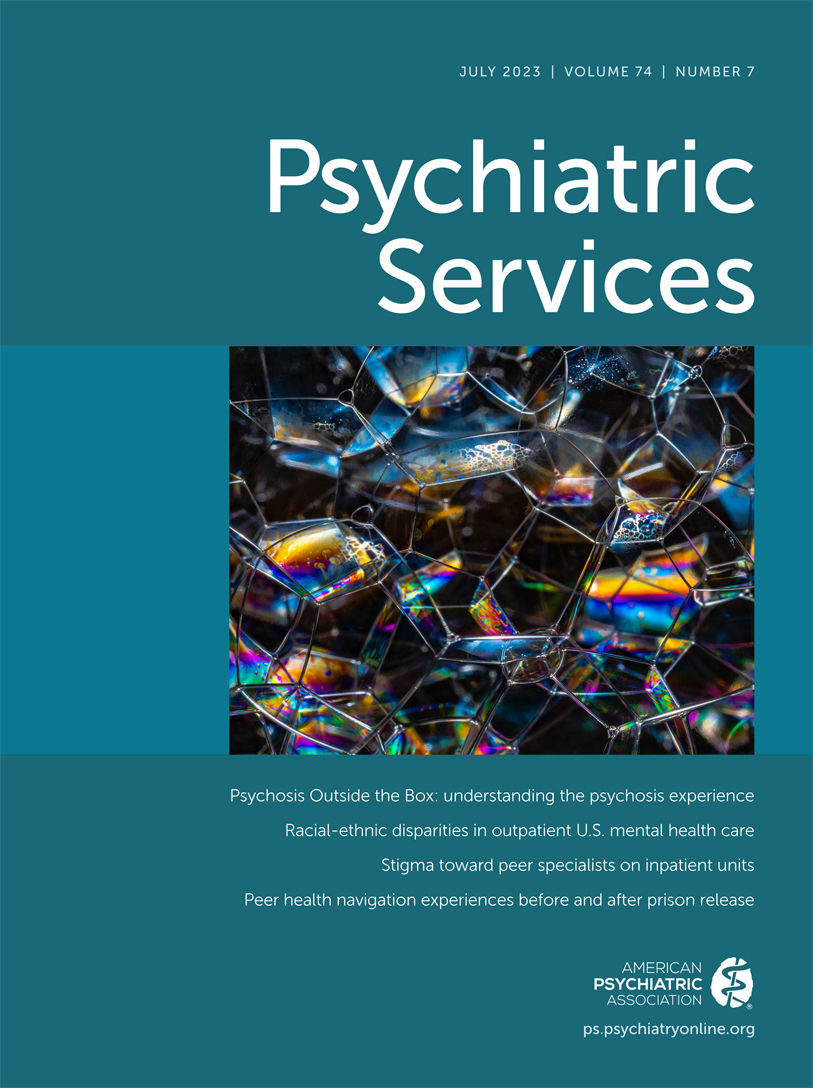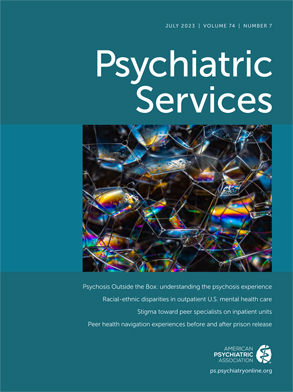Psychosis Outside the Box: A User-Led Project to Amplify the Diversity and Richness of Experiences Described as Psychosis
Abstract
HIGHLIGHTS
When diagnosed with paranoid schizophrenia at age 18, I was immediately taught medical-model language to name and explain my experiences. I learned that contemporary inquiries into mental phenomena apply postenlightenment objectivism to psychosis, and these assumptions framed the vocabulary I was expected to use to communicate my experiences. Early into the diagnosis, when meeting with my doctors, I would attempt to describe my nonconsensus reality outside of the simplistic bucket of “hallucinations.” I would talk about the world shifting in front of my eyes and surfaces changing their textures under my hands. After mentioning these things, I was referred to a local substance use center, despite my doctor’s knowing that I had never used drugs. Over the following years, I found that even mentioning my alternative experiences was more challenging and tended to conform to clinical language, despite my not resonating with the terminology.
Similar to Shannon’s experience, my initial encounters with the ubiquitous DSM schizophrenia checklist left me feeling alone and misunderstood. What I was experiencing was in fact complicated and multilayered: profound shifts in the “feeling” of space and time and presences in things—that is, inanimate objects suddenly appearing animated or agentive and boundaries between self and others dissolving (for instance, feeling that other people could access my thoughts at all times). Early on, I responded to different clinicians in different ways: sometimes with angry denial (“none of the questions you ask actually get at my experiences”), sometimes with concession and defeat (defaulting to the only language that appeared to be available even as it oversimplified, reduced, or distorted the complexity of what I was actually struggling with); at other times, I decided that whatever was wrong with me must be my own idiosyncratic nameless madness. It was not until years after my initial diagnosis, when I started organizing “hearing voices” and “unusual beliefs” groups and engaging with many dozens of other people with psychosis experiences, that I came to understand how not alone I was, how unexceptional my experiences were.
| Prompt | Sample response |
|---|---|
| In the context of psychosis, have you experienced visual or quasi-visual changes or phenomena? These might include visions, “seeing” voices or figures in your mind’s eye, and changes in the way that faces or objects look or appear. Please describe what you experience. | Outside of my mind, out in the world, I have seen a bunch of different things. Spiders, flying bugs, beetles, and cats [that others did not see]. I have seen angels. I have seen someone start to bleed out of their ears. I have seen a headless person holding their severed head in their lap. I have seen geometric patterns. I have seen, but at the same time not seen (perhaps “sensed,” but in a visual way), fairy creatures and bugs coming out through small rifts in the space-time continuum and crowding my visual field and consciousness. I could go on. |
| If you experience or have experienced visions or visual or quasi-visual phenomena that are at times challenging or distressing, what strategies have you developed for navigating these experiences? | Sometimes they are not scary, they are pleasant or amusing. When they are scary, but I don’t think I’m in danger, I use regular coping skills like self-soothing stuff or distraction stuff . . . like getting into something cozy to wear, listening to music, watching TV, drawing, taking walks, journaling, etc. Sometimes, I ask the people around me if they experience what I do. If I am scared and I think I am in danger or my threat response is activated and my [substance use disorder] increases, I’m not that good at coping—I’ll scream, I’ll pace, I’ll take a PRN [medication] and get into bed. |
| Have you ever experienced “felt presences” or the presence of a force, entity, or spirit either within your body, in a room or nearby, or in an external object like a tree or building? Please describe. | I don’t know if I have. I’ve felt infested with bugs before. I’ve felt animated by a universal force, where I don’t feel I have control over my movements or what I say—but it wasn’t spiritual. It was more mechanical and sci-fi. |
| If you experience or have experienced distress or challenges related to “felt presences,” please describe any strategies you have developed for navigating these challenges. | I just let go and let G-d. In some way, when I feel possessed, I feel like I must have some control, and I have faith that I could take back control of my body if I really needed to. . . . I tell myself this. I hope it’s true, because it’s scary. |
| Have you experienced any alterations of the “feeling” of objects, of the distance between things, or of space or time? For example, feeling like your hands or feet are sinking into or merging with solid objects, feeling like hard surfaces have become permeable or feeling like you might fall through the floor? Please describe. | I have felt time go too fast or flow or become disoriented in space and time. I’m not sure if this is what the question is aiming at. |
| If you experience or have experienced distress or challenges related to alterations of the feeling of objects, distance, time, or space, please describe any strategies you have developed for navigating these challenges. | I try to remind myself that I am whole and contained and that I have a body and a physical boundary. That while I am connected to the world, I am also contained within my own vessel. |
The “Psychosis Outside the Box” Compilation
Discussion and Implications
Clinician Training and Education
Integration in Clinical Settings
Language Development and Enrichment
Lived Experience Leadership
Conclusions
Acknowledgments
References
Information & Authors
Information
Published In
History
Keywords
Authors
Competing Interests
Metrics & Citations
Metrics
Citations
Export Citations
If you have the appropriate software installed, you can download article citation data to the citation manager of your choice. Simply select your manager software from the list below and click Download.
For more information or tips please see 'Downloading to a citation manager' in the Help menu.
View Options
View options
PDF/EPUB
View PDF/EPUBLogin options
Already a subscriber? Access your subscription through your login credentials or your institution for full access to this article.
Personal login Institutional Login Open Athens loginNot a subscriber?
PsychiatryOnline subscription options offer access to the DSM-5-TR® library, books, journals, CME, and patient resources. This all-in-one virtual library provides psychiatrists and mental health professionals with key resources for diagnosis, treatment, research, and professional development.
Need more help? PsychiatryOnline Customer Service may be reached by emailing [email protected] or by calling 800-368-5777 (in the U.S.) or 703-907-7322 (outside the U.S.).

